Object of Intrigue: the Ladder at the Center of a Centuries-Old Religious Tussle
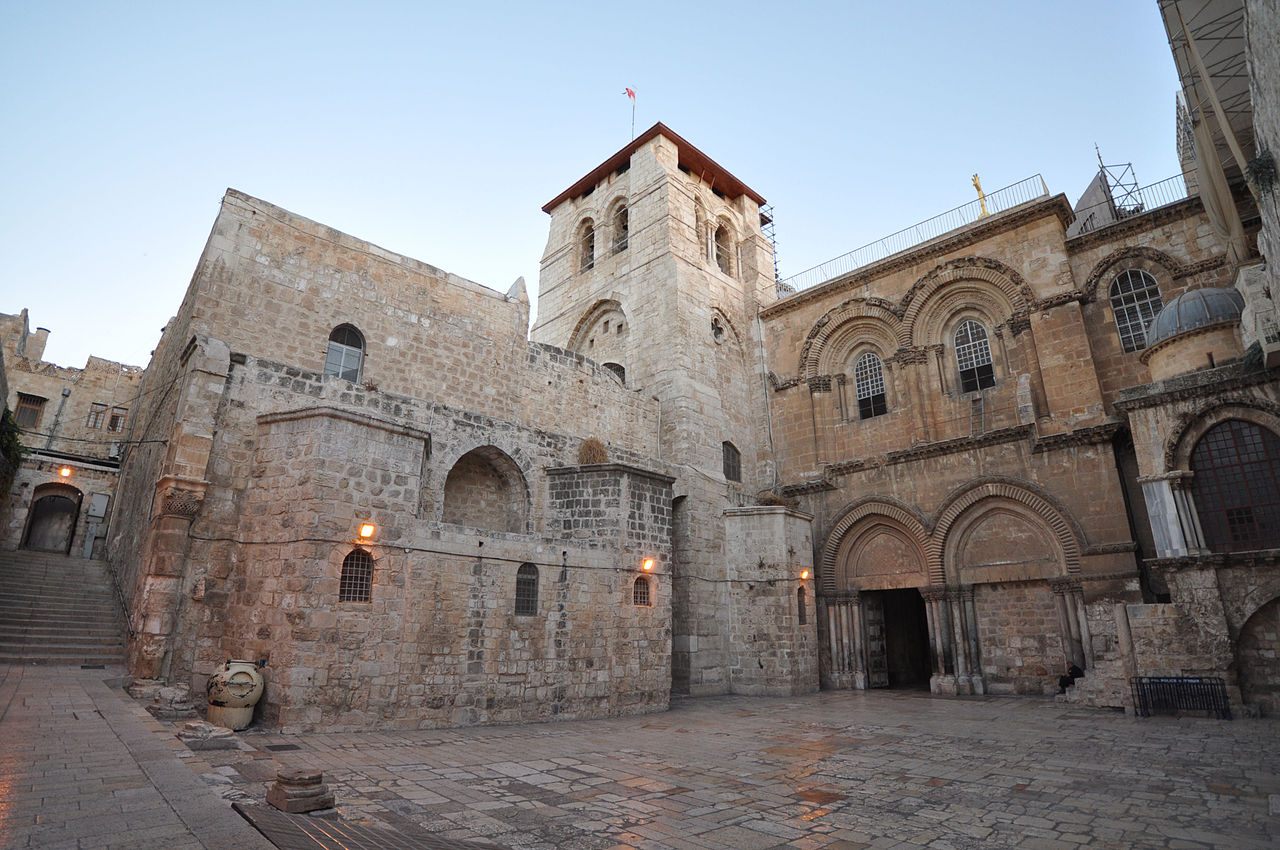
The Church of the Holy Sepulchre. (Photo: Jorge Láscar/Creative Commons)
The Church of the Holy Sepulchre in Jerusalem is a holy pilgrimage spot for Christians because it is regarded as the crucifixion and burial site of Jesus Christ. The church is also home to an object that’s been inciting tension and hostility since the 18th century: a ladder.
The contentious ladder, a simple wooden one with five rungs, sits on a ledge beneath an arched window on the church’s facade. It has been in that same spot since at least the mid-19th century. At that time, Jerusalem was under Turkish rule, and competing Christian denominations were squabbling over the right to control its holy sites. The Church of the Holy Sepulchre was a particularly disputed spot, with the Greek Orthodox, Armenian Apostolic, Roman Catholic, Coptic, Ethiopian Orthodox, and Syriac Orthodox churches in constant conflict over access and management of the site. A 1757 Ottoman decree established a “status quo” arrangement at the church, dividing it up into sections and determining access and usage among the denominations. But still the sects argued over schedules, territory, and rightful ownership.
In 1852, Ottoman ruler Sultan Abdülmecid I was so fed up with the fighting that he issued an edict freezing all of the religious arrangements that were then in place at the Holy Land’s sacred sites, including, according to the Times of Israel, “rights of possession, lighting, decorations and hours of worship.”
This meant that everything had to stay in place—including the five-rung ladder propped up on the church’s edifice.
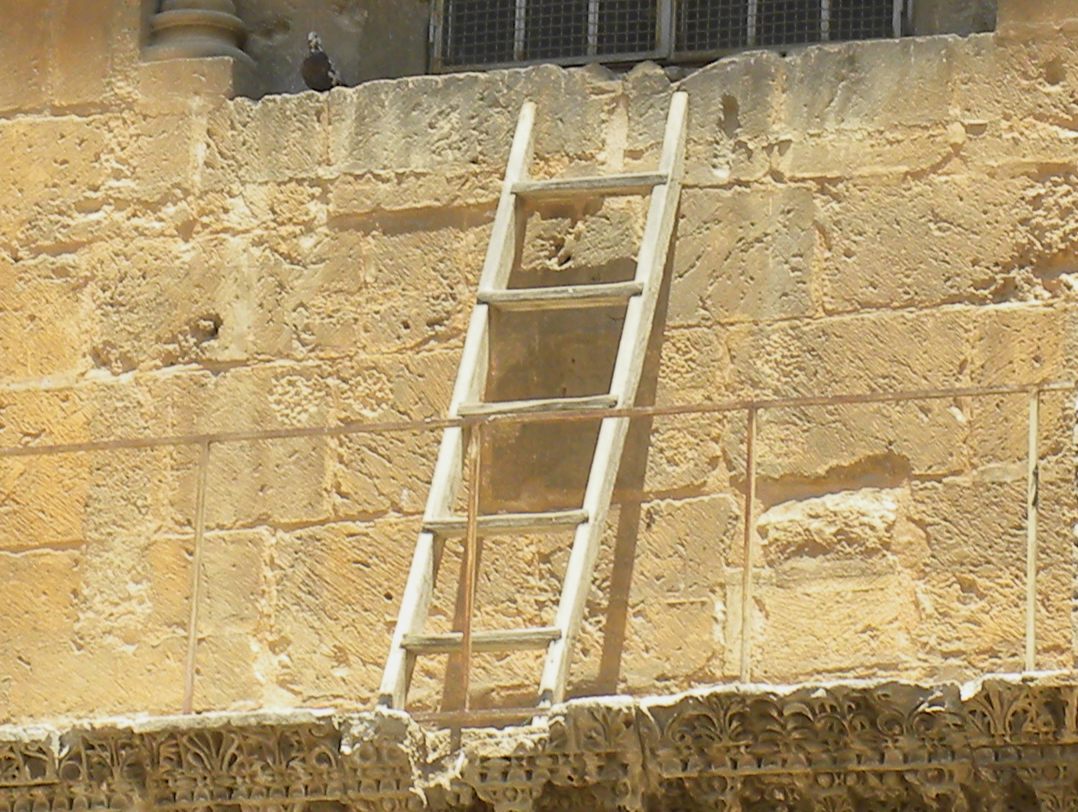
A stealthy pigeon (denomination unknown) stands sentinel over the contentious ladder. (Photo: Wilson44691/Creative Commons)
Since no one can say who has the right to take it down, any attempts to move it would be regarded as an incursion by the denomination in question, and therefore a violation of the status quo. The ladder, which has come to be known as the “immovable ladder,” or the “status quo ladder,” has remained in place since the issuing of the edict.
The notion that distinguished clergymen are perpetuating a centuries-old feud over a few planks of wood may strike some as petty, but ”ladders are a popular symbol of control at the Holy Sepulcher,” says the Times of Israel. ”Like a flag, the ladder stands there to assert sovereignty.”
In addition to their protracted stand-offs over maintenance equipment, the Christian sects managing the Holy Sepulchre often run into practical problems related to its upkeep. In one case, a fight broke out over who would have the honor of paying for restorations and cleaning. In 2014, according to the Times, “the Israeli government stepped in and paid to replace a bumpy chapel floor because Syrian and Armenian Orthodox clergy both claimed rights to the floor and both refused to let the other pay.” This was a few years after “it took seven weeks of negotiations for the church’s denominations to agree on new toilets.”
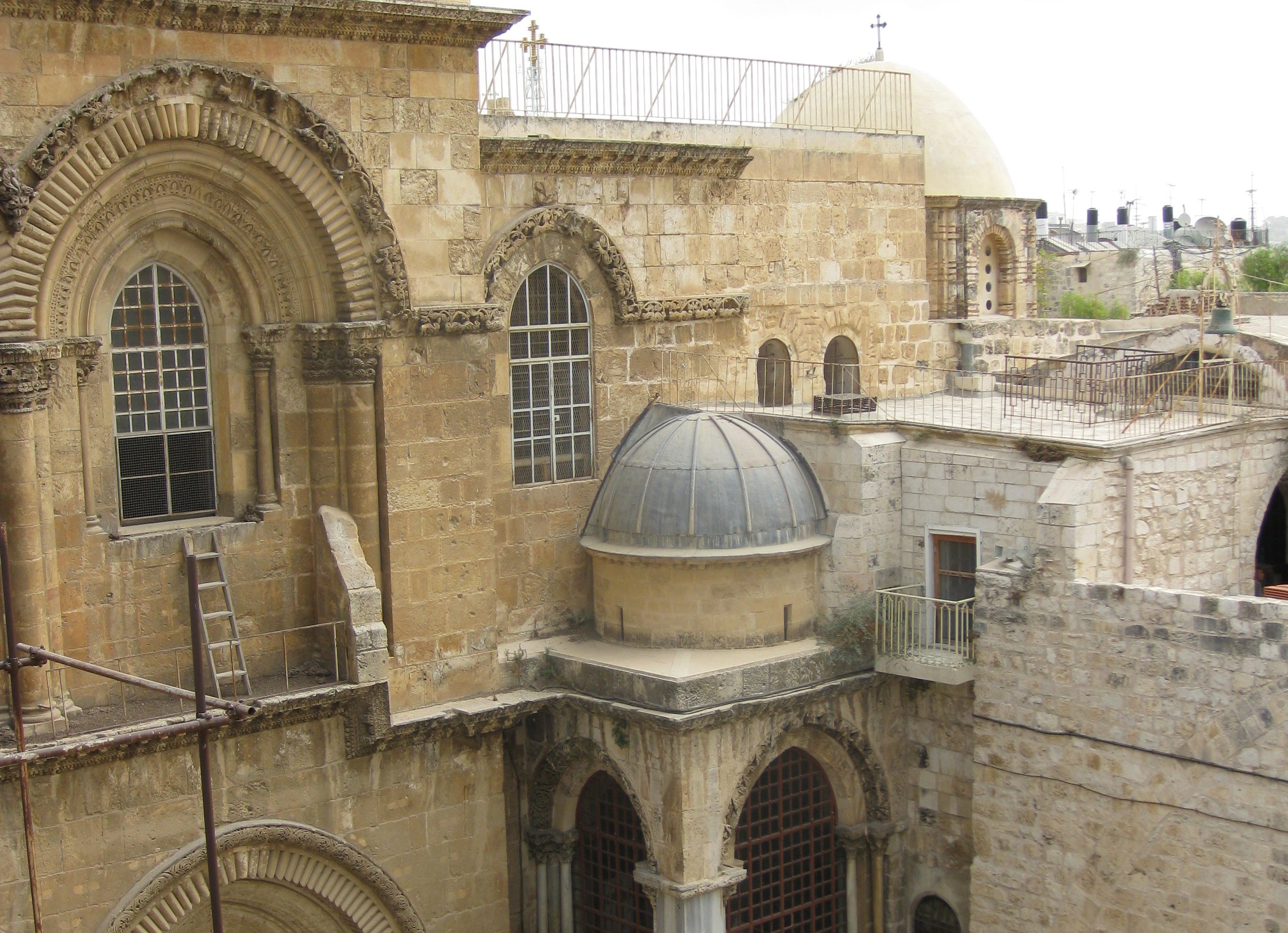
The facade of the church, with the ladder at left. (Photo: Deror avi/Creative Commons)
Some clerics have even resorted to fisticuffs. The Times of Israel claims “scuffles erupt about twice a year when monks overstep their bounds.” According to PRI, the “last major brawl was in 2008, between Armenian and Greek Orthodox clergy during a processional, when Armenians said a Greek monk was interfering.”
Fire safety is also a big issue at the Church of the Holy Sepulchre. Every year at Easter, thousands of worshippers pack the church, each holding a lit candle. The church has just one door, but no fire exits have been added because, according to an Associated Press report in 2011, “safety concerns have been outweighed by a reluctance to upset a brittle balance of power among the six Christian sects.”


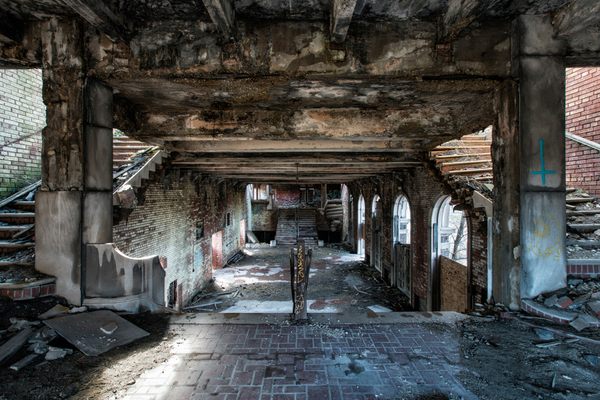

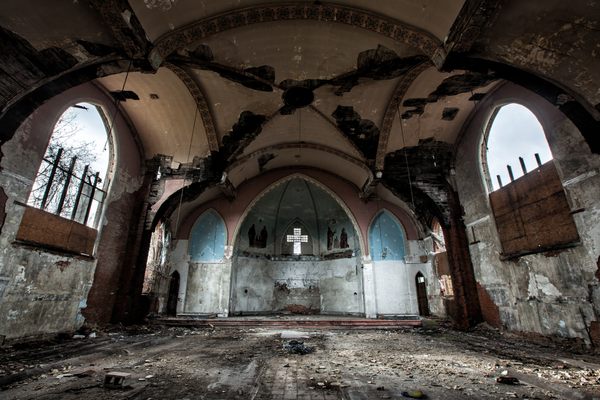
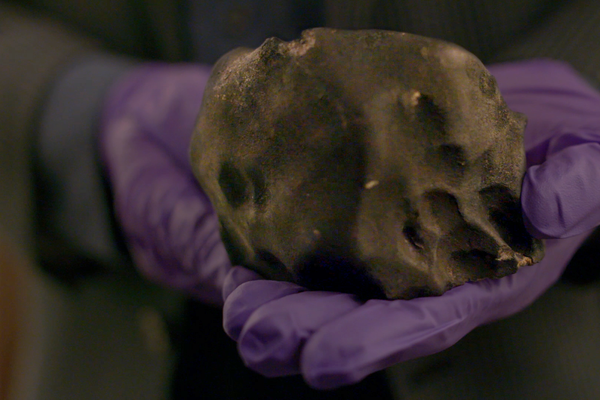
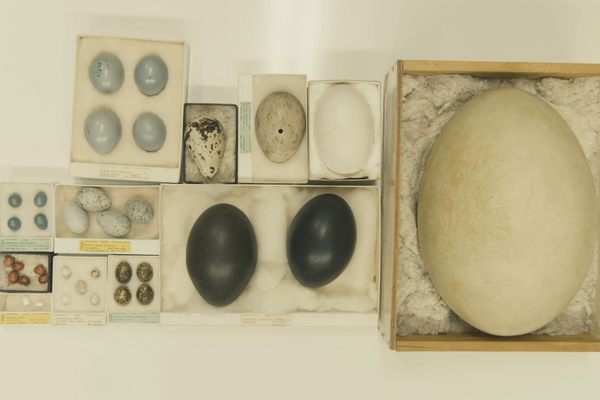
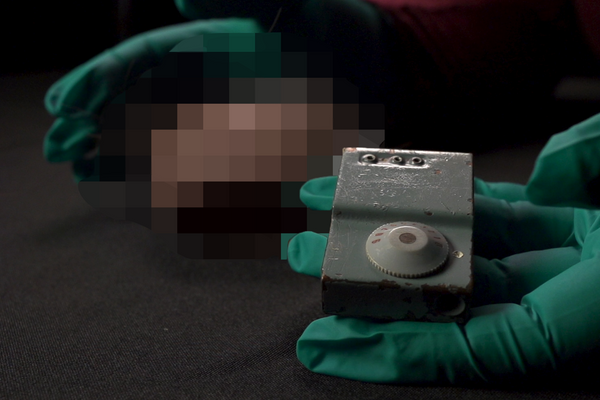



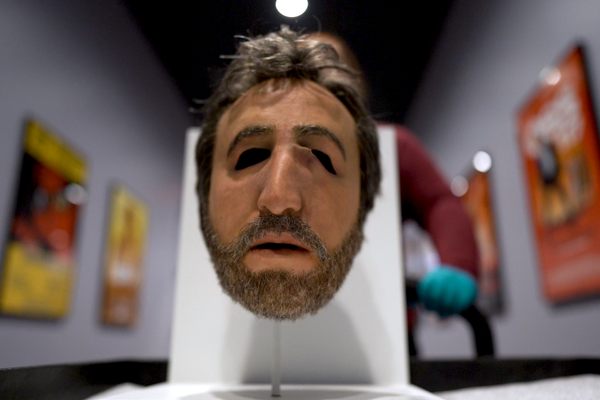



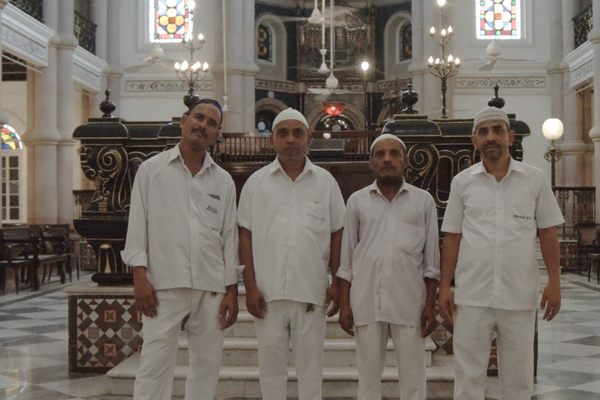





Follow us on Twitter to get the latest on the world's hidden wonders.
Like us on Facebook to get the latest on the world's hidden wonders.
Follow us on Twitter Like us on Facebook